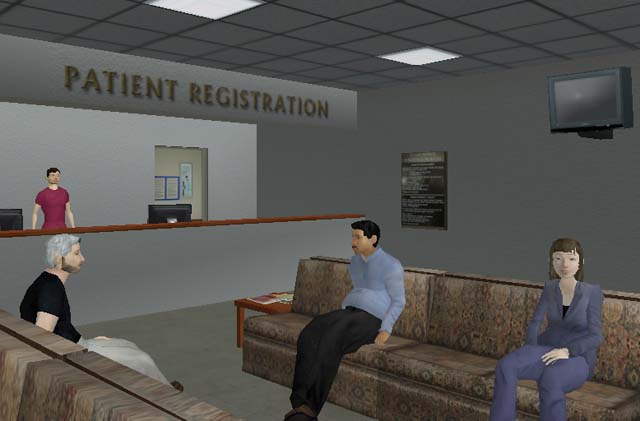Via: Forterra Systems
Forterra Systems, the market and technology leader in private virtual worlds, announced early this month the immediate release and availability of its On-Line Interactive Virtual Environment - OLIVE™ 1.0 platform as a software development kit (SDK).
Over $50M has been invested to date in the OLIVE architecture, yielding one of the most scalable virtual world environments available. “This technology will be a transformative force for our customers. They are already indicating that they can achieve their business goals more quickly, less expensively, and with greater reach through creating their own virtual worlds,” said Dave Rolston, Forterra’s CEO. “Our customers and partners are already creating an amazing array of compelling applications around distance training, organizational exercises & rehearsals, virtual office collaboration, emergency preparedness, customer service, product/process prototyping, therapy & rehabilitation, partner communities, town meetings, and retail operations optimizations.”
Scenarios of victims exposed to nerve toxins and radioactive bomb blasts support the learning of large-scale emergency management and rehearsal of events that cannot be reproduced safely in the real world.
This education technology is less expensive and logistically more convenient than bringing dozens of learners and volunteers together in real life. Patient avatars, equipped with physiology models, enable teams of trainees to diagnose critical medical conditions and practice coordinated effective treatments.
Dr. Dev commented, “The medical simulations we created and tested on the OLIVE platform, represent a major breakthrough for distance learning in medicine. I believe Forterra is releasing a disruptive technology that will yield dramatic learning benefits across many industries in addition to what I see in medicine.”
The University of Central Florida School of Film & Digital Media is another Forterra partner. The school's Interactive Performance Lab Director, Jeff Wirth, selected OLIVE as the virtual world platform from which to run their latest "Simu-life," blending virtual and real experiences in their mixed-reality performances.
"With the OLIVE platform we are able to establish relationships of trust between inter-actors and participants as they seamlessly transition back and forth between real and virtual environments. We believe that the business community will soon discover the benefits of this process."
The 3D Virtual Worlds Special Interest Group (SIG) is a bi-monthly meeting for developers of virtual world platforms and related applications. This series of events brings together the programmers, content developers, and visionaries required to build virtual worlds.
Virtual worlds have emerged amidst the mix of gaming, social networking, and 3D modeling technologies. Now they are the focus of considerable attention as a platform for media, virtual economies, and collaborative work. Many virtual worlds are created for and rely on developer-generated content as an integral part of their collaborative plan. This SIG will facilitate the collaborations and business partnerships required to build these virtual and emulated spaces.
Remaining dates for SIG meetings in 2007: Aug 27, Oct 22




